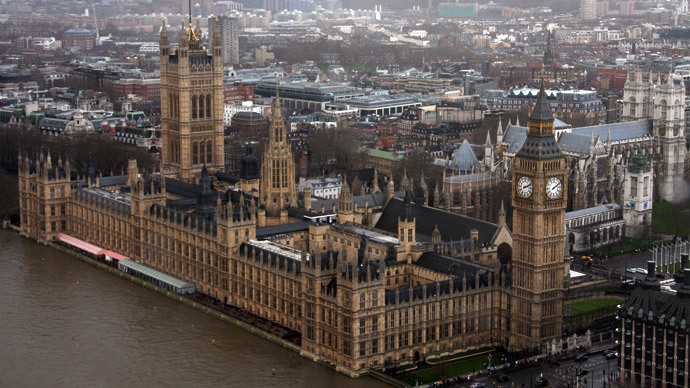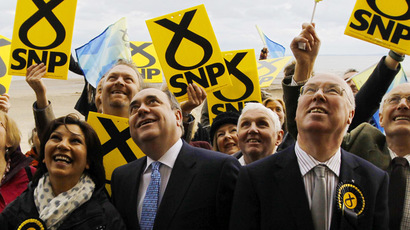MPs mull more powers for Scotland post referendum

MPs are to debate the future of the UK constitution and the extent of devolved powers to regional parliaments on Tuesday, in the wake of the Scottish independence referendum which saw the United Kingdom maintained.
Some MPs are expected to call for more devolution for England, known as “English votes for English laws.” They wish to solve the West Lothian Question, an imbalance which allows Scottish MPs to vote on English laws, but denies English MPs influence over Scottish matters.
During the campaign ahead of the Scottish referendum, Prime Minister David Cameron, Labour leader Ed Miliband and Liberal Democrat leader Nick Clegg pledged to devolve more powers to Scotland if voters rejected independence. Devolved powers would include control of spending and taxation.
In the September 18 referendum, 55 percent of Scots voted against independence, while 45 percent opted to break the 307-year old union. Having failed to secure a ‘Yes’ vote, Scotland’s First Minister Salmond said he would step down in November.
Soon after the results, Cameron pledged to hand tax-raising powers to the Scottish Parliament, but said that in turn Scottish MPs would be prevented from voting on English matters.
William Hague, leader of the House of Commons, said on Tuesday the government was determined to uphold its promise on Scottish powers. He added that the consequences of more devolution for England could not be “evaded.”
“This is a matter of fairness for the whole of the United Kingdom,” he said.

However, greater devolution could lead to broad differences in the way in which each country in the UK is governed. MPs have asked for more debate and clarification over the impact Scottish devolution will have on the rest of the country.
On Monday, the UK government published a ‘command paper' on devolution, setting out its aims for the transfer of powers to the Scottish Parliament, including greater financial responsibility.
Scottish Secretary Alistair Carmichael said: “The referendum result made clear the majority of people in Scotland want to see a strong devolved parliament as part of the UK.”
“We pledged further devolution and we will deliver on that promise,” he added. “Today’s command paper sets out the detail of the political positions from the parties.”
Westminster Command Paper fails to reflect the 'Vow' with no mention of "extensive new powers" #indyscothttp://t.co/iqlZRpOnTM
— The SNP (@theSNP) October 13, 2014
The Scottish National Party (SNP), however, dismissed the proposals as a “damp squib.” There have also been calls for another Scottish independence referendum. Scotland's Deputy First Minister Nicola Sturgeon recently said that Scotland gaining independence is a question of “when, not an if.”














